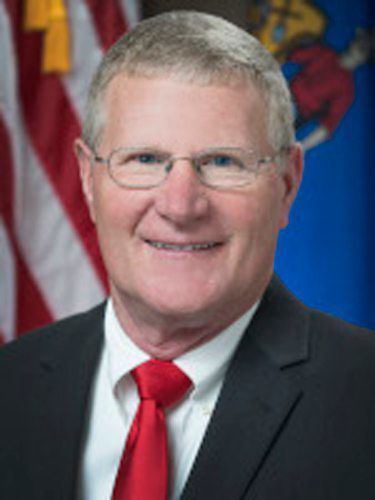MADISON — If a food product is labeled “milk,” it had better come from a cow or a goat and not a nut, a state senator told the Wisconsin Senate Agriculture and Tourism Committee on Tuesday.
Testifying in support of three “truth-in-labeling” bills he authored, Sen. Howard Marklein, R-Spring Green, said farmers have told him that the legislation is important to their bottom line.
“It’s more than cosmetic — it would have a tremendous impact,” said Marklein, whose district includes Grant and Lafayette counties.
The milk, dairy products and meat labeling bills, Senate Bills 81 to 83, would prohibit a food product from being labeled as meat or a dairy product if it didn’t contain the flesh or milk from a hooved animal.
The Legislature would clear up the confusion that consumers experience when they mistake plant-based cheese, milk or meat products from the real deal, Marklein said.
By a 2-1 ratio, consumers in a 2018 poll said nondairy beverages such as almond, oat or soy milk shouldn’t be referred to as milk as they are plant-based products, said Chad Zuleger, a spokesman for the Green Bay-based Dairy Business Association.
“Don’t allow misappropriation of the term milk … which is defined in federal law as coming from cows,” Zuleger said.
Clever packaging just adds to the confusion. Committee Chairman Joan Ballweg, R-Markesan, admitted to buying a chocolate drink and only realizing it wasn’t chocolate milk when she got home.
Accurate labeling is also valuable because, in another poll, one-third of consumers wrongly credited imitation dairy products with the same nutritional value as dairy products, he added.
Zuleger said the legislation aims to prompt the U.S. Food and Drug Administration to enforce federal mislabeling laws.
“The failure to not enforce labeling requirements has gone on too long,” he said.
On the federal level, the Dairy Pride Act has been introduced into the Senate and would require the FDA to issue guidelines for nationwide enforcement and update Congress within two years on its enforcement efforts.
John Umhoefer, executive director of Wisconsin Cheesemakers Association, said passing the state bills in essence tells the FDA “that you’re doing your job wrong.”
In order to not run afoul of interstate commerce restrictions, if enacted, the bills would not be implemented until 10 of 15 listed states, including Iowa, passed labeling bills, Umhoefer said.
To date, he wasn’t aware of any other states approving similar laws.
Meat labeling laws passed in Arkansas, Missouri and Oklahoma have been challenged on First Amendment and other grounds, but no final decision has been rendered, said Jordan Lamb, spokesperson for the Wisconsin Cattlemen’s and Pork associations.
The committee only took testimony Tuesday on the bills and didn’t schedule a session when they would vote on them.


